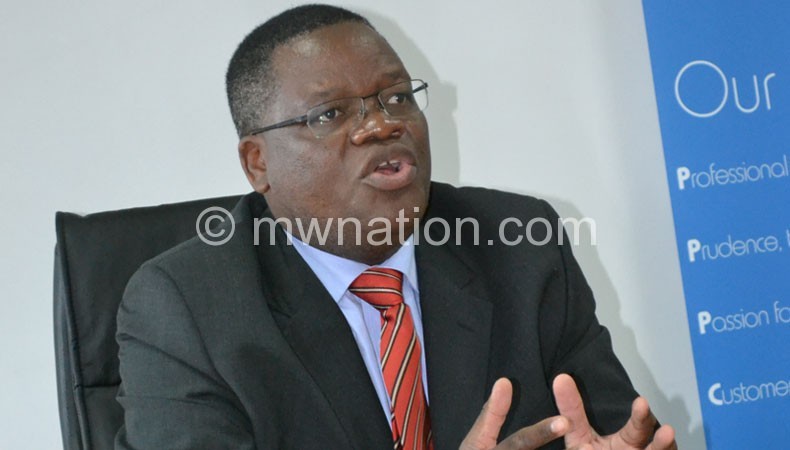Regional communications project taking shape—PPPC
The Public Private Partnership Commission (PPPC) has said the World Bank-funded Regional Communications Infrastructure Project (Rcip) is taking shape, adding that soon Malawians will start experiencing faster and cheaper Internet services.
PPPC chief executive officer Jimmy Lipunga told Business News on the sidelines of Institute of Chartered Accountants in Malawi (Icam) Annual Lake Conference on Friday in Mangochi that Malawi has access to the submarine cables along the east coast of Africa, a development that has enabled the country to start accessing “faster and cheaper Internet” services.

cost bottlenecks
Said Lipunga: “So far, Capital Hill is connected; soon more people will be connected. This development means Internet will be cheaper and affordable to users. The price of data will dramatically go down because of this project.”
He said Malawi Government in collaboration with the World Bank embarked on the project in 2012 to improve the quality, availability and affordability of communications services in the country while at the same time improving Malawi’s connectivity to international communications services.
According to PPPC, the World Bank injected about $20 million (K11.3 billion) into the programme.
Malawi, like many countries in Africa, has historically had an underdeveloped communications infrastructure which contributes to the high cost of doing business.
Experts say while Malawi has registered success in the development of basic voices services and wider network coverage, access is still limited because of high international call and broadband Internet connectivity costs.
With the introduction of 10 percent tax on data and short message service (SMS) on July 1 this year, Malawi has become one of the countries with highest Internet tariffs in the Southern Africa Development Community (Sadc).
Surprisingly, such high tariffs are in sharp contrast with government’s vision of developing information and communication technology (ICT) as a priority sector.
Nevertheless, Lipunga is upbeat that once the project is fully finalised it will create an enabling environment for businesses in ICT, which is one of the key sectors in the overall development strategy.
“The project will help remove cost bottlenecks to international connectivity and other bottlenecks at the national and local levels. In the long run, it will improve productive capacity and reducing the cost of doing business, positioning creativity as a tool for shared growth and creating incentives for private sector investment,” he said.
Lipunga explained that the overall objective of the project is to improve quality, availability and affordability of broadband within Malawi for both public and private users.




